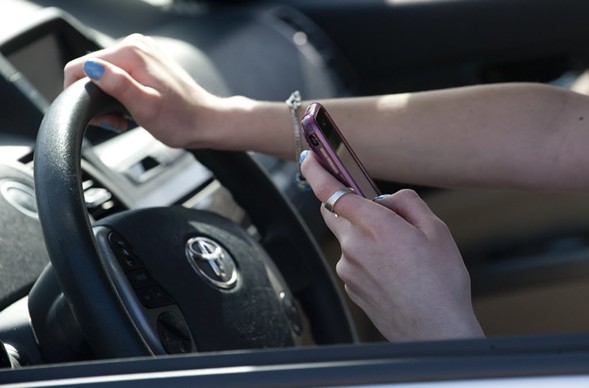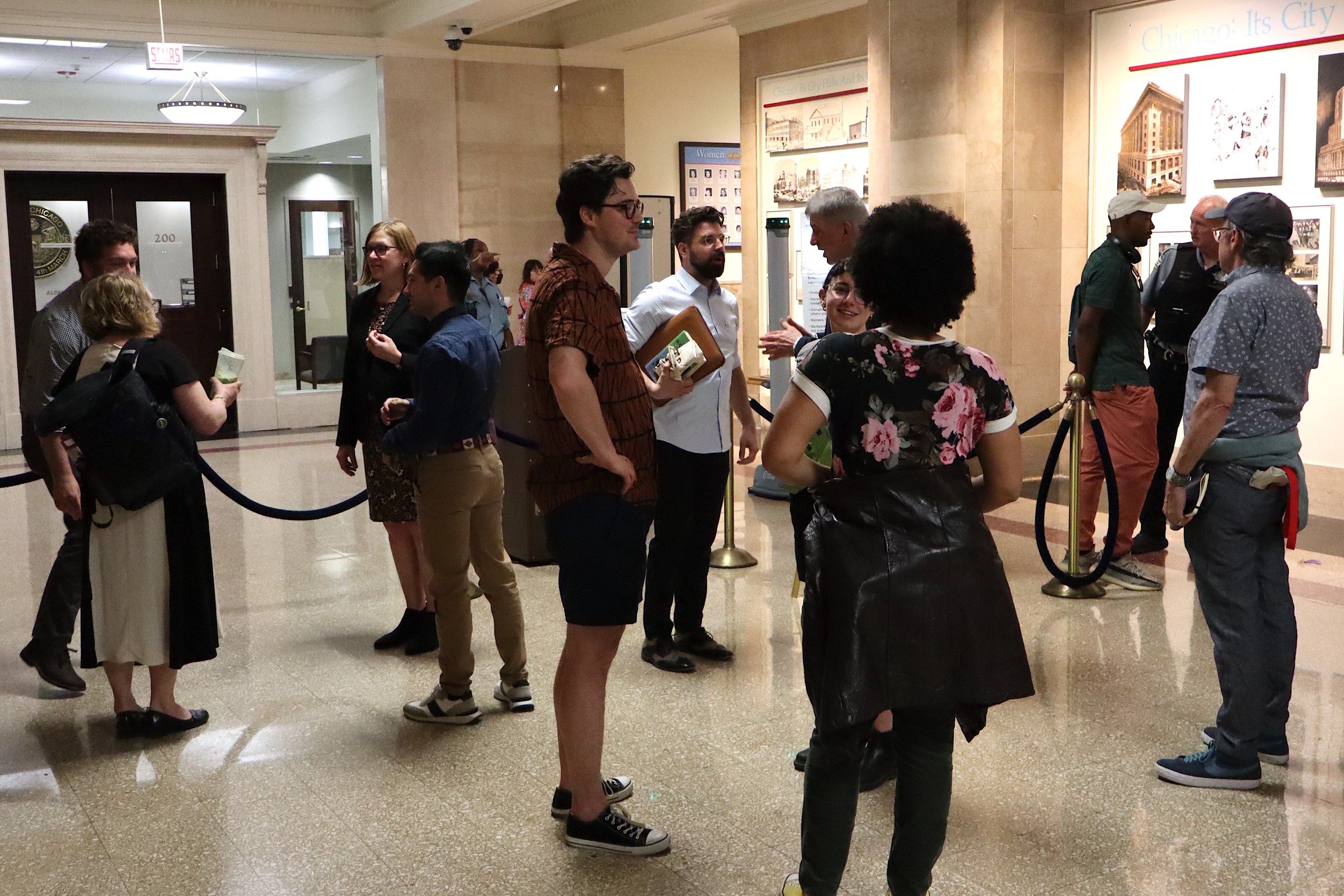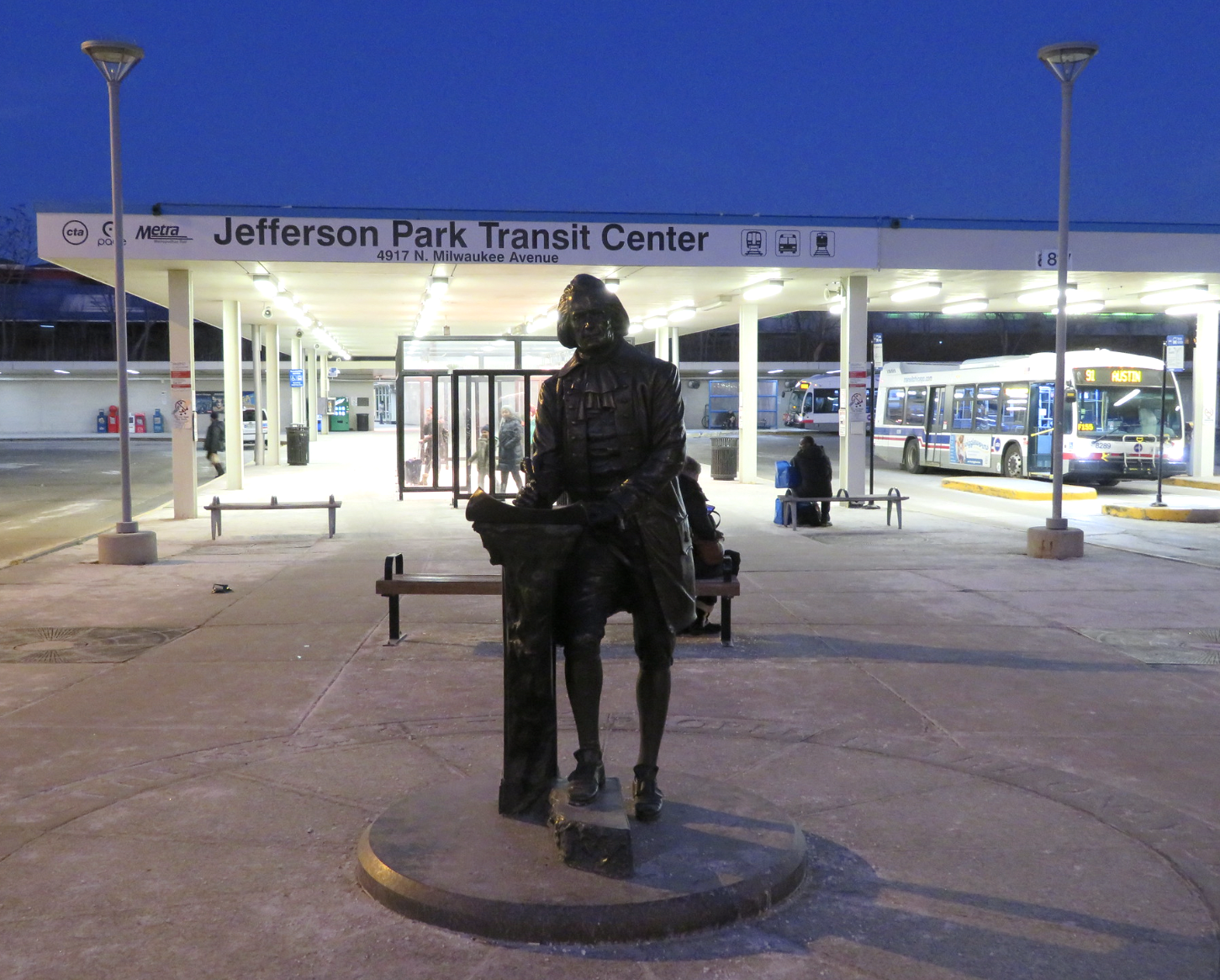Chicago transportation commissioner Rebekah Scheinfeld is voicing support for a proposal to use a device known as a "textalyzer" to crack down on distracted driving with cellphones. Two aldermen, Anthony Beale Beale (9th) and Edward Burke (14th), have introduced a resolution asking the Chicago Police Department to look into using a $10,000 device from Cellebrite, which makes phone data extraction and hacking tools, that would allow officers to immediately copy the data on a motorist’s phone to determine if they had been using it while driving.
Cellebrite already makes devices that copy data, but the Chicago Sun-Times reported that it doesn't instantly determine if a phone was recently used to call or text. And it doesn't appear that it's currently possible to hack the strong encryption that iPhones and Androids use, so a driver would have to unlock their phone to allow the police to access their data.
While talking with Sun-Times reporter Fran Spielman, Scheinfeld missed an opportunity to describe the actual strategies in the upcoming, interdepartmental Vision Zero plan to eliminate serious and fatal crashes by 2026. Instead, Scheinfeld made a false equivalency between distracted driving and distracted walking or cycling. "Any kind of distraction while a user is moving through the right of way — whether they are walking, biking or driving — can lead to very dangerous consequences," she said. "We all have to do our part to stay alert and follow the rules of the road."
Let's be clear: Distracted walking or bicycling aren't what's fueling our nation's current traffic death crisis -- dangerous driving is. A recent study found that the scale of distracted driving is off the charts: Motorists with smart phones use hand-held devices in 88 out of every 100 trips. And in the Sun-Times interview, Scheinfeld did call texting while driving one of the "top five causes of traffic crashes."
On the other hand, it should be noted that nationally in 2014, cellphone-distracted driving was attributed to the deaths of 404 people, or only 1.2 percent of all 32,675 traffic deaths. Other factors, such as intoxicated driving, cause far more fatalities but, as the recent ten-day jail sentence for the drunk driver who killed cyclist Bobby Cann illustrates, our society is often overly lenient with DUI perpetrators.
Spielman highlighted how little the Chicago Police Department is doing nowadays to enforce the city's distracted driving laws, which ban the use of a handheld phone while driving. In 2014, Chicago police issued over 45,000 citations to motorists for driving while using handheld phones, according to the Sun-Times, but fewer than 170 in 2016, and only 74 so far this year. Scheinfeld said she couldn't explain the huge drop in enforcement, but noted that the police department is partnering with CDOT on the Vision Zero effort.
An Illinois state trooper told the Chicago Tribune this month that it's not hard to spot a driver using a phone, but state police aren't pulling over every driver. That's definitely also true for the Chicago police, as the above numbers show.
Notably, the phone-copying "texalyzer" isn't a way to find more people to pull over, but to determine instantaneously a motorist's cellphone use, rather than using existing legal channels. For a police officer to inspect a motorist's phone, they have to pull them over, and the data shows that the police have largely stopped doing that. Secondly, the Chicago Police Department's Major Accidents Investigation Unit already tries to obtain search warrants to review cellphone records after serious or fatal crashes where there's evidence of distracted driving.
There are personal privacy ramifications of such a policy. For example, would police want to use this technology to check pedestrians' phones to see if they were texting before entering a crosswalk without a walk signal? Or, when the police "stop-and-frisk" someone, which disproportionately impacts people of color, would they want to inspect a phone for potential drug deals?
Instead of voicing support for this newfangled privacy-invading technology, Scheinfeld should have taken the opportunity to tell the Sun-Times about tried-and-true practices from around the world that the city of Chicago will be using to fight traffic violence. But we still don't know what those are because CDOT still hasn't published the Vision Zero plan, several months after the originally stated fall 2016 release.




